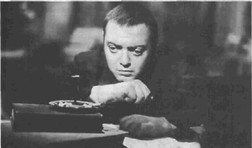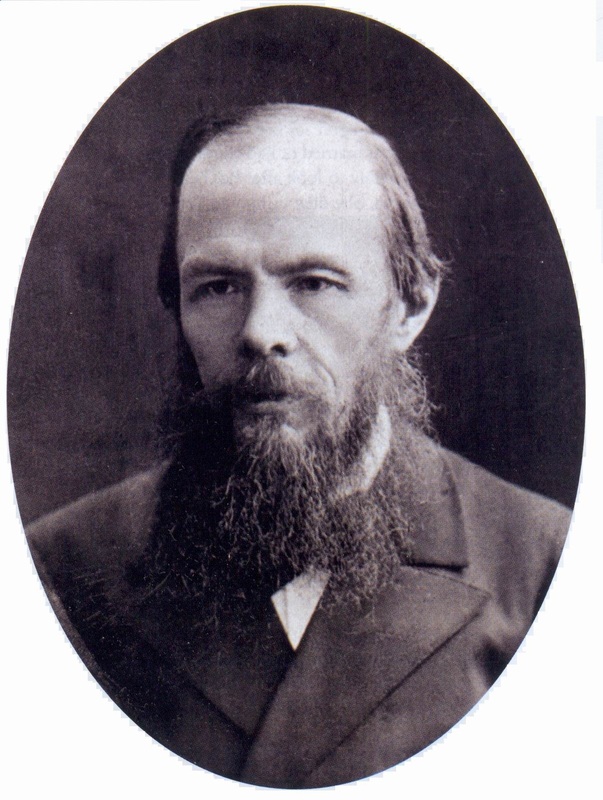
While reading the book Crime and Punishment, I've noticed that Raskolnikov has a sort of odd character to him. However, I am very fascinated with his thoughts and actions. In the part of the story that I am on now, Raskolnikov has a strange dream. In this dream, Raskolnikov is a child again. He and his father are going for a walk, and end up at the graveyard where is grandmother and younger brother are buried. His younger brother died when he was only six months old. The quote "Near his grandmother's grave, which was marked by a stone, was the little grave of his younger brother, who had died six months old and whom he could not remember. He had been told about his little brother and every time they visited the cemetary he devoutly and reverently crossed himself before the little grave and bowed down and kissed it" holds a lot of significance. This quote not only foreshadows some event, but also shows irony. Raskolnikov is honoring the dead by crossing himself, but later on in the story, commits two murders. Raskolnikov also dreams that while leaving the cemetary, he and his father passes a tavern. Outside of the tavern, a drunken man was whipping his old, battered horse. The man eventually gets a group of drunk people together to help him beat the horse until it died. The whole time, Raskolnikov is crying out and trying to get them to stop. However, he is unsuccessful, and witnessed the death of the horse. Another event is foreshadowed in the story, based on the quote "Cries arose. 'He'll crush her! He'll crush her!'". Earlier in the story, Raskolnikov thought about a dream that he had that 'came true'. Raskolnikov awoke suddenly after the death of the horse.
In the next part of the story, Raskolnikov goes out for another one of his walks so that he could clear his mind. During his walk, he encounters a woman by the name of Lizaveta Ivovna, who is the younger half-sister of Alena Ivavna. The story describes how Raskolnikov goes to Alena to pawn items and borrow money from her, and how lately he has not benn paying her back. It can be inferred from the quote "He had learned, suddenly and quite unexpectedly, that at seven o'clock the next day Lizaveta, the old woman's sister and only companion, would be out, and that meant that at seven o'clock in the evening the old woman would be at home alone" that Raskolnikov is planning to kill the old woman. I think that money is the motive behind his plan. The story explains how stingy Alena was, leaving in her will only her furniture for her sister. All of her money in her will was going to a monastary in order to 'rest her soul'. The quote "kill her, take her money, on condition that you dedicate yourself with it to help to the service of humanity and the common good: don't you think that thousands of good deeds will wipe out one little, insignificant transgression?' was stated by someone sitting a few tables away from Raskolnikov at a bar, whose conversation he just happened to overhear. This quote shows verbal and situational irony because this was Raskolnikov's plan for the murder and robbery of the old woman, and the person saying it didn't realize that it would actually happen later.
In the next part of the story, Raskolnikov goes out for another one of his walks so that he could clear his mind. During his walk, he encounters a woman by the name of Lizaveta Ivovna, who is the younger half-sister of Alena Ivavna. The story describes how Raskolnikov goes to Alena to pawn items and borrow money from her, and how lately he has not benn paying her back. It can be inferred from the quote "He had learned, suddenly and quite unexpectedly, that at seven o'clock the next day Lizaveta, the old woman's sister and only companion, would be out, and that meant that at seven o'clock in the evening the old woman would be at home alone" that Raskolnikov is planning to kill the old woman. I think that money is the motive behind his plan. The story explains how stingy Alena was, leaving in her will only her furniture for her sister. All of her money in her will was going to a monastary in order to 'rest her soul'. The quote "kill her, take her money, on condition that you dedicate yourself with it to help to the service of humanity and the common good: don't you think that thousands of good deeds will wipe out one little, insignificant transgression?' was stated by someone sitting a few tables away from Raskolnikov at a bar, whose conversation he just happened to overhear. This quote shows verbal and situational irony because this was Raskolnikov's plan for the murder and robbery of the old woman, and the person saying it didn't realize that it would actually happen later.

 RSS Feed
RSS Feed